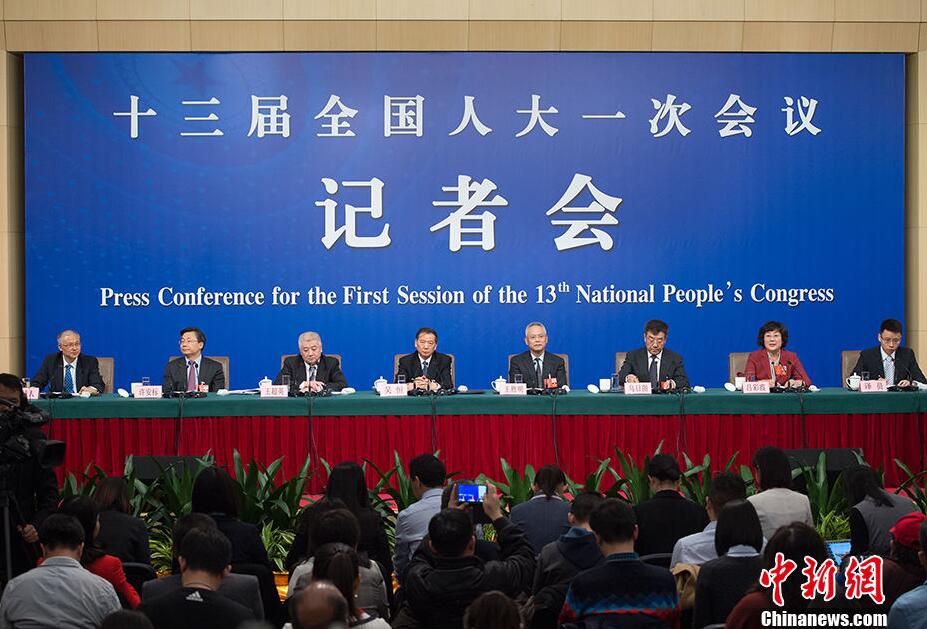
The five functional modules of the operating system are processor management, memory management, device management, file management and operation management. Processor management The most basic function of processor management is to process interrupt events. After configuring the operating system, various events can be processed.
The functions of the computer operating system include: processor management, memory management, device management, file management, job management and other functional modules. Processor management. The most basic function of processor management is to handle interrupt events. The processor can only detect interrupt events and generate interrupts and cannot process them.
Storage management is divided into several functions: storage allocation, storage sharing, storage protection, and storage expansion.Equipment management has the following functions: equipment allocation, equipment transmission control, and equipment independence. File management: file storage space management, directory management, file operation management, file protection.
The operating system should usually include the following five functional modules: (1) Processor management. When multiple programs are running at the same time, solve the problem of processor (cpu) time allocation. ( 2) Operation management. The program to complete an independent task and its required data constitute a task.
The function of the operating system is mainly reflected in the management of computer resources - microprocessors, memory, external devices, files and tasks. The operating system sets this management function into the corresponding program management module, and each management module is responsible for a certain function.That is, the five functions of the operating system.
The operating system has five functions: processor management: mainly controls and manages the work of the CPU. Storage management: mainly carry out memory allocation and management device management: mainly manage basic input and output device file management: responsible for the organization, storage, operation and protection of computer files, etc.

There are the following types of management systems: the management system of the finished product set. This kind of system is a stereotyped management system, which makes a small number of functional adjustments to the software through the parameter settings of the software.
Transaction Processing System (TPS): Operators and supervisors are used to input transactions, events, sort, list, merge updates, output detailed reports, lists and summaries, etc. Management Information System (MIS): Middle managers are used to input general transaction data and simple models to process routine reports.
Adgecal management system Academic management system is one of the most core management systems of the school, which is responsible for arranging and managing the school's teaching activities. It includes curriculum setting, teaching plan, teacher arrangement, examination management and other contents.
VMware vSphere: It is a virtualization management platform that can be used to manage virtual machines, storage and networks, etc. Nagios: It is an open source network monitoring system that can be used to monitor network devices, servers and applications, etc.
Financial subsystem: providing the function of financial management information; Decision support subsystem: make the logistics information system reach a higher level.
ERP management system brand Youyou, Jindie International Software, Wave Software, Dingjie Software, Zhenghang Software. Use friends.
1. System management refers to the information technology system that manages enterprises, and file management is one of the five major functions of the operating system.First, network management refers to the centralized management of resources on the network by network administrators through network management programs.
2. System Management regards organizational components as interrelated and interdependent systems, so it advocates applying the system concept to the management concept.
3. System management refers to the process of maintaining, managing and monitoring computer systems. As an important part of enterprise informatization construction, the importance of computer system management cannot be ignored.
TNT Sports-APP, download it now, new users will receive a novice gift pack.
The five functional modules of the operating system are processor management, memory management, device management, file management and operation management. Processor management The most basic function of processor management is to process interrupt events. After configuring the operating system, various events can be processed.
The functions of the computer operating system include: processor management, memory management, device management, file management, job management and other functional modules. Processor management. The most basic function of processor management is to handle interrupt events. The processor can only detect interrupt events and generate interrupts and cannot process them.
Storage management is divided into several functions: storage allocation, storage sharing, storage protection, and storage expansion.Equipment management has the following functions: equipment allocation, equipment transmission control, and equipment independence. File management: file storage space management, directory management, file operation management, file protection.
The operating system should usually include the following five functional modules: (1) Processor management. When multiple programs are running at the same time, solve the problem of processor (cpu) time allocation. ( 2) Operation management. The program to complete an independent task and its required data constitute a task.
The function of the operating system is mainly reflected in the management of computer resources - microprocessors, memory, external devices, files and tasks. The operating system sets this management function into the corresponding program management module, and each management module is responsible for a certain function.That is, the five functions of the operating system.
The operating system has five functions: processor management: mainly controls and manages the work of the CPU. Storage management: mainly carry out memory allocation and management device management: mainly manage basic input and output device file management: responsible for the organization, storage, operation and protection of computer files, etc.

There are the following types of management systems: the management system of the finished product set. This kind of system is a stereotyped management system, which makes a small number of functional adjustments to the software through the parameter settings of the software.
Transaction Processing System (TPS): Operators and supervisors are used to input transactions, events, sort, list, merge updates, output detailed reports, lists and summaries, etc. Management Information System (MIS): Middle managers are used to input general transaction data and simple models to process routine reports.
Adgecal management system Academic management system is one of the most core management systems of the school, which is responsible for arranging and managing the school's teaching activities. It includes curriculum setting, teaching plan, teacher arrangement, examination management and other contents.
VMware vSphere: It is a virtualization management platform that can be used to manage virtual machines, storage and networks, etc. Nagios: It is an open source network monitoring system that can be used to monitor network devices, servers and applications, etc.
Financial subsystem: providing the function of financial management information; Decision support subsystem: make the logistics information system reach a higher level.
ERP management system brand Youyou, Jindie International Software, Wave Software, Dingjie Software, Zhenghang Software. Use friends.
1. System management refers to the information technology system that manages enterprises, and file management is one of the five major functions of the operating system.First, network management refers to the centralized management of resources on the network by network administrators through network management programs.
2. System Management regards organizational components as interrelated and interdependent systems, so it advocates applying the system concept to the management concept.
3. System management refers to the process of maintaining, managing and monitoring computer systems. As an important part of enterprise informatization construction, the importance of computer system management cannot be ignored.
100 free bonus casino no deposit GCash
author: 2025-01-08 05:13100 free bonus casino no deposit GCash
author: 2025-01-08 05:09Hearthstone Arena class tier list 2024
author: 2025-01-08 04:47UEFA Champions League standings
author: 2025-01-08 04:10 Bingo Plus
Bingo Plus
835.46MB
Check PAGCOR online casino free 100
PAGCOR online casino free 100
858.96MB
Check UEFA Champions League standings
UEFA Champions League standings
569.73MB
Check Europa League app
Europa League app
751.44MB
Check Hearthstone arena deck Builder
Hearthstone arena deck Builder
136.96MB
Check UEFA live free
UEFA live free
372.48MB
Check DigiPlus fair value
DigiPlus fair value
259.49MB
Check Champions League
Champions League
945.84MB
Check PAGCOR online casino free 100
PAGCOR online casino free 100
488.69MB
Check LR stock price Philippines
LR stock price Philippines
362.33MB
Check DigiPlus stock
DigiPlus stock
268.56MB
Check DigiPlus Philippine
DigiPlus Philippine
119.67MB
Check Bingo Plus stock
Bingo Plus stock
135.25MB
Check LR stock price Philippines
LR stock price Philippines
377.28MB
Check Casino Plus free 100
Casino Plus free 100
784.95MB
Check UEFA live free
UEFA live free
129.58MB
Check UEFA live free
UEFA live free
453.23MB
Check UEFA Champions League live streaming app
UEFA Champions League live streaming app
148.88MB
Check European Cup live
European Cup live
696.32MB
Check Hearthstone Arena class tier list 2024
Hearthstone Arena class tier list 2024
249.64MB
Check Arena Plus login
Arena Plus login
934.42MB
Check bingo plus update today Philippines
bingo plus update today Philippines
565.79MB
Check UEFA Champions League live
UEFA Champions League live
316.54MB
Check Casino Plus GCash login
Casino Plus GCash login
336.84MB
Check Hearthstone arena class win rates reddit
Hearthstone arena class win rates reddit
655.78MB
Check UEFA TV
UEFA TV
787.96MB
Check Casino Plus GCash login
Casino Plus GCash login
795.19MB
Check UEFA Champions League
UEFA Champions League
392.21MB
Check Europa League app
Europa League app
664.15MB
Check UEFA Champions League live streaming free
UEFA Champions League live streaming free
637.78MB
Check Walletinvestor digi plus
Walletinvestor digi plus
392.49MB
Check UEFA Champions League live streaming free
UEFA Champions League live streaming free
322.23MB
Check Hearthstone arena
Hearthstone arena
291.95MB
Check Casino Plus free 100
Casino Plus free 100
154.47MB
Check DigiPlus
DigiPlus
667.78MB
Check UEFA Champions League
UEFA Champions League
765.36MB
Check
Scan to install
TNT Sports to discover more
Netizen comments More
347 尽善尽美网
2025-01-08 04:51 recommend
188 张王李赵网
2025-01-08 04:48 recommend
2436 成千上万网
2025-01-08 04:41 recommend
2348 黄泉之下网
2025-01-08 04:20 recommend
2780 脂膏不润网
2025-01-08 03:57 recommend